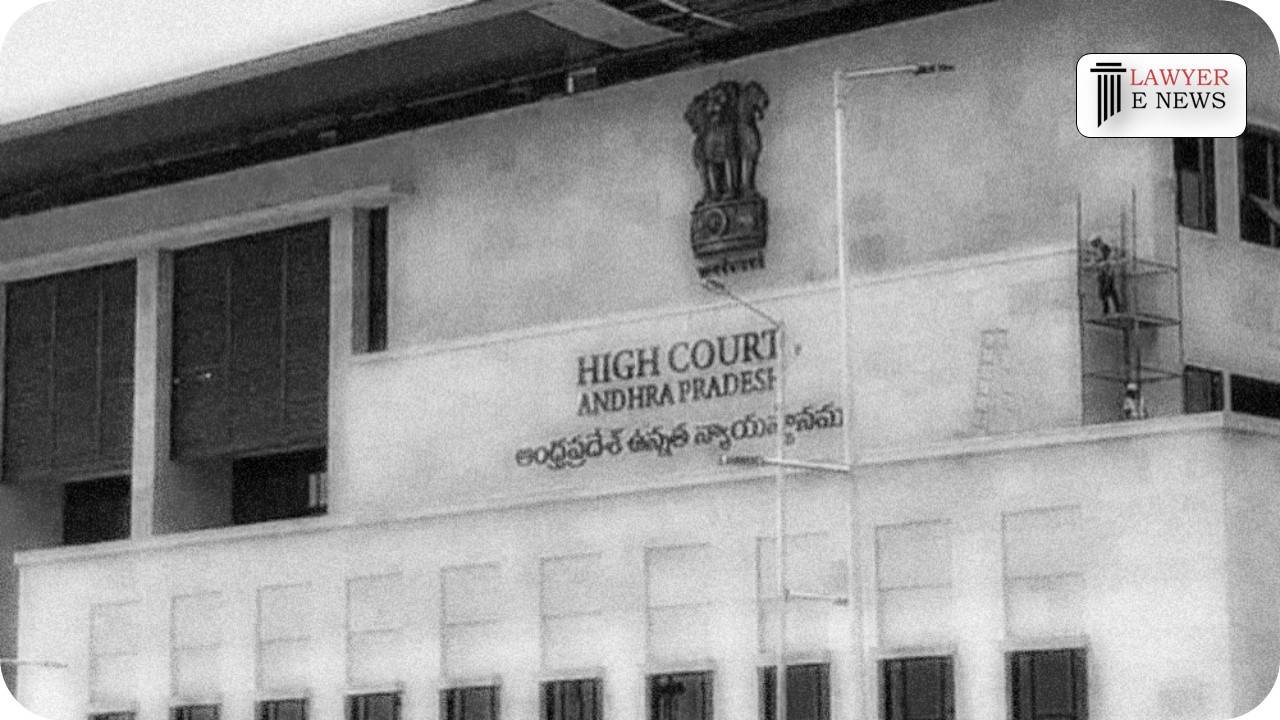-
by Admin
15 February 2026 5:01 PM



The Andhra Pradesh High Court, in a significant ruling, has upheld the rights of possession certificate holders over government-assigned lands. The court declared the cancellation of possession certificates without a proper hearing as a violation of natural justice principles. The judgment, delivered by Justice Ravi Nath Tilhari, underscores the necessity of following due process before taking adverse actions impacting civil rights.
The petitions were filed by Dudekula Husainamma and others (W.P. No. 199/2018) and Dudekula Pedda Janamma (W.P. No. 23333/2018), challenging the state respondents’ actions in threatening demolition of houses and cancelling possession certificates on government-assigned lands. The petitioners argued that the cancellation notices were issued without prior notice or hearing, violating their legal rights.
The High Court emphasized the critical importance of procedural fairness and the principles of natural justice. “Cancellation of possession certificates without prior notice or hearing to the affected parties is deemed unlawful,” the court noted. Justice Tilhari highlighted that due process must be followed before taking any adverse actions impacting civil rights.
In response to the petitioners’ plea, interim relief was granted to maintain the status quo on house sites pending final adjudication. The court allowed the petitioners to retain possession until lawful eviction or cancellation procedures are followed.
The court extensively discussed the principles of evaluating evidence in land encroachment cases. It reiterated that a conviction or adverse action can only be sustained if due process and natural justice principles are strictly followed. “In cases involving civil rights, the necessity of a fair hearing cannot be overstated,” the court stated.
Justice Ravi Nath Tilhari remarked, “The cancellation of possession certificates without affording an opportunity of hearing to the affected parties is a gross violation of natural justice. The principles of fairness demand that before passing any order having civil consequences adverse to a party, an opportunity of hearing must be given.”
The Andhra Pradesh High Court’s judgment reinforces the judiciary’s commitment to upholding procedural fairness and natural justice in administrative actions. By affirming the necessity of due process, the ruling sets a precedent for future cases involving land encroachment and possession rights. The decision is expected to have a profound impact on ensuring that governmental authorities adhere strictly to legal procedures before taking actions that affect citizens’ civil rights.
Date of Decision: July 08, 2024
Dudekula Husainamma and Others VS State of Andhra Pradesh and Others
